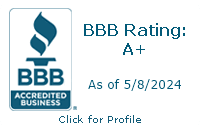Looking back at 2007 and plans for 2008.

Setting the Stage
Some run swiftly; some creep painfully; all who keep on will reach the goal. – Piyadassi Thera
My firm experienced a lot of change in 2007 – personnel changes early in the year, landing a number of new clients and the associated startup issues of serving these, exploring a possible joint venture, and expanding a service line. Having written that sentence, I am now thinking, "Actually, that's not so different from prior years, or from what other businesses typically face." And yet – 2007 feels somehow both "tougher" and "better" for me. The likely reason for "tougher" is the number of leadership challenges these changes brought. The definite reason for "better" is my preparation for these challenges – and this preparation came through a daily commitment to development.
A Daily Commitment to Development
Leadership develops daily, not in a day. – John C. Maxwell
Have you ever thought about the analogies between, say, a football game and real life? In football, there's practice, the first half, halftime, the second half, and post-game reviews – and this pattern repeats each week of the season. During practice, coaches observe and evaluate the players, to help them reach their full potential. During the game, similar observations and evaluations occur, with small changes made during the game, and larger adjustments made at halftime. After the game, coaches and players review the film together, and changes are planned and implemented.
In real life, can you have the equivalent of practice, halftime, and post-game? If you have a formal accountability process, you can – and this enables you to have "evaluated experience," instead of just "experience." Having a supervisor who consistently reviews your progress and coaches you to higher levels of performance can provide similar benefits. (And just to be clear – annual or even quarterly performance reviews do not qualify, because they do not provide real-time feedback and adjustments.)
A formal accountability process requires an investment of time – not only for developing yourself, but also for planning and working on ways to develop your business. How much time is required for such a daily commitment? I devote about 5% of my week to personal development. I devote at least another 5% of my week to developing my business – that is, working ON my business, above and beyond the time to work IN my business. (For more on these concepts, please see our March 2007 e-newsletter and case study entitled Helping a Business Owner Work ON The Business.)
Development Through Accountability
The first person you lead is you. – John C. Maxwell
This time last year, I wrote about techniques I decided to practice consistently in 2007 – these included:
- Determining areas where I needed to make improvements.
- Finding an accountability partner for each area.
- Agreeing upon the roles of both persons in the accountability relationship (the other person as "accountability partner" and me as the "accountable partner"), the format of the accountability meeting, and the types of positive (negative) consequences for meeting (failing to meet) agreed-upon goals.
- Scheduling and conducting periodic meetings with my accountability partner, using a standard agenda.
- Adopting a "no excuses" mindset in our accountability meetings.
For 2007, the areas I chose to focus on were:
- Leadership.
- Management of Time, Tasks, and Priorities.
- Practice Management.
- Business Development.
I chose these areas for my 2007 focus, deciding to consciously and consistently improve myself in these areas, so I could better lead others.
Where Development REALLY Occurs
Experience is not the best teacher–evaluated experience is. Reflection turns experience into insight. – John C. Maxwell
The easy part is making the decision to be accountable to someone else. The hard part is sticking to that decision – especially the first time you haven't met your agreed-upon goals, and your accountability partner calls you out on that.
Some insights from my experiences in 2007:
- Practice is needed to make the accountability relationship work routinely – and the routine develops by being willing to explain your actions.
- Honest communication is a must with your accountability partner – this person must know what you truly NEED to be effective, versus what you believe you WANT.
- Determining what truly motivates you is important to a successful accountability partnership, as is sharing this with your accountability partner.
- Getting tasks done – especially those "big picture" or "strategic" tasks – may require going "out of balance" at work (that is, high overtime) for a short period, to yield a longer-term "in balance" at work. Going "out of balance" for this reason is a conscious decision to achieve extreme personal growth.
- If you never set aside time to evaluate your experience, you will never have evaluated experiences.
You really have some serious development in store for you when you come to an accountability meeting, knowing that you haven't met an agreed-upon goal.
- In the accountability meeting, there is no room to hide from your accountability partner! Definite answers and solutions are waiting at that meeting, which relieves the accountable partner from "second guessing" and wasting precious time and energy repeatedly thinking and worrying about a mistake or shortcoming.
- The very first time, it's really tough to 'fess up to your accountability partner – but that's when you really learn and grow.
- For several times following the first time, it's still hard to admit shortcomings – that's because you still have to get rid of the veneer of perfection you want to present to your accountability partner. Do try to get over this quickly.
- After you have messed up and 'fessed up a few times, these discussions become easier, because you're now able to laugh at yourself. Something like this – "Hey, Abby – Guess what I did... Yeah, what was I thinking? And I know the consequences are...so let's go ahead and take care of those right now."
- The quicker you talk about your failures with your accountability partner, the quicker your mind is freed of "mental clutter" – you no longer worry about the failure, because you have evaluated your experience and adjusted tactics to improve in the future.
Of course, you'll also describe successes to your accountability partner, and positive consequences will follow – the most growth, however, comes from evaluating mistakes. The accountability meeting forces honest reflection and evaluation of an experience, yielding valuable insight and growth.
Goals established during accountability meetings are always in context of current or likely events for the business – so these meetings become the business equivalent of the halftime review and adjustments in a football game. Such meetings provide the evaluated experience needed to prepare and adjust thoughts and actions, as opportunities arrive or problems arise.
2007: The Daily Commitment Pays Off
Once the opportunity arrives, it's too late to prepare. – John Wooden
Being accountable is a choice – so is not being accountable. That daily choice and the associated focus and discipline it brings accumulates and compounds over time – the longer you've done it, the easier it is to apply these techniques to new areas.
In January 2007, here's what I publicly committed to do – and here are my results:
- Continue relying on my accountability partners, in their respective areas. Done!
- Continue practicing personal accountability in my weekly and monthly Business Development goals, staking my BlackBerry on my performance. Done – all goals met!
- Begin practicing personal accountability in deliberately nurturing my Business Development skills on a weekly and monthly basis, and modifying the "Todd's Results" page to publicly report results and to include a recommended resource. Done – all goals met!
The second and third items involved my accountability to my Director of Business Development, Carol Dalgarn, who evaluated my results and posted the outcomes every month on the "Todd's Results" web page.
The first item involves my other accountability areas – here are some of the outcomes.
- A consistent weekly focus on leadership improvement helped me become a more effective communicator within my own firm – I now consistently talk with every firm member weekly, and I update all firm members on key news each month (either via email, or at a firm meeting).
- Evaluating a potential joint venture (which I ultimately decided not to pursue) caused me to question some underlying assumptions on which I had built the firm. A sustained focus on answering these questions over a 10 week period helped me clarify what is truly remarkable about the firm and its personnel, and where we do – and, just as importantly, do not – fit in the market for technology-related professional services.
- A "failure" in one accountability area in late 2007 required me to concentrate on improving my time planning skills. This evaluated experience required me to show my daily calendar to my accountability partner – with planned tasks and estimated times for the day – forcing a new way for me to think about and plan my time. The benefit? My calendar now reflects the items I must get done that day – and unplanned tasks are much less likely to distract me. (For an insightful article about the effect of interruptions on productivity, see "Five Ways to Reduce Work Distractions" by Daniel Markovitz – this is available at: www.vistage.com/featured/dont-pardon-the-interruption.html .)
- I recently conducted yearend reviews in various areas with my accountability partners – determining what worked (or didn't) in 2007, and evaluating ideas and setting goals for 2008.
I credit the structure, commitment, and focus coming from routine accountability to helping cut the time from idea to implementation on at least a dozen key business tasks this year. Furthermore, the same structure, commitment, and focus provided the routine I needed to get me through a few tough times in 2007 – which were short-lived and ultimately beneficial to the firm and me.
For me, consistently applying these practices in 2007 yielded not only solid business results, but also an immeasurable reduction in mental clutter!
2008: What's Next
No one quits the Boston Marathon at mile 25. – Seth Godin
What's on tap for 2008? A lot, actually! Here's a snapshot:
- Taking the firm to the next level by planning and executing specific business initiatives identified in 2007 to sustain profitable growth.
- Further improving my skills in delegating to others and holding them accountable for results.
- Getting more things done by effectively communicating these business goals, and managing the weekly activities of my staff to achieve those goals.
All these items – and more – will get done in 2008, because these goals have been communicated to my accountability partners, and we will jointly determine the weekly tasks needed to reach these goals.
Concluding Thoughts
Decisions help us start. Discipline helps us finish – John C. Maxwell
If you've read this far, you're probably thinking, "Todd, what you describe seems unremarkable and boring. Do these techniques really work?"
Yes – but only if you make a decision, and have the discipline to stick to it. This daily commitment is found in mutually agreed-upon tasks. You will not only do these tasks every day, as expected, you will also be drawing support and encouragement from your accountability partner.
It works the same way a colony of ants builds an ant farm – moving a single grain of sand is not much, but moving a grain of sand consistently and consciously, with the end result in mind, yields incredible results. For over 18 years, I have built this firm by setting high standards of performance for myself and those around me. I bristle at the first hint of complacency from myself or others – to me, complacency is the enemy of growth. Complacency implies inaction, and I have chosen to minimize inaction and maximize growth by practicing daily accountability – both personally and professionally.
When prolific inventor Thomas Edison needed motivation to move something from idea to implementation, he reportedly would call a press conference to announce a new product! This public declaration provided him the motivation he needed to actually get it done. This article is my equivalent of Edison's press conference – putting it out there. This year, I will share my monthly accountability results on our web site – www.toddherman.com/toddsresults. I invite you to share your accountability experiences with me, as I begin 2008 with high expectations for myself, the other firm members, my accountability partners – and, of course, my business.
Sincerely,

Todd L. Herman






